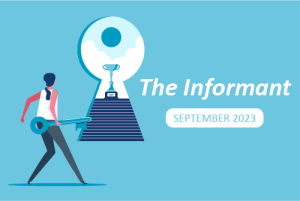Mental Health and Wellbeing in the Workplace
February 19, 2020The World Health Organization (WHO) defines ‘mental health’ as “a state of well-being in which the individual realizes his or her own abilities, can cope with the normal stresses of life, can work productively and fruitfully, and is able to make a contribution to his or her community”.[1] In turn, a mental illness is a diagnosable illness that affects a person’s thinking, emotional state and behaviour, and disrupts their ability to carry out these daily activities and form satisfying relationships.[2]
One in five Australians aged 16 to 85 experience a common mental illness (anxiety, depression or substance abuse disorder) in any year.[3] This is a staggering figure, and does not take into account the rarer types of mental illness (such as schizophrenia and bipolar disorder) or non-reporting of illnesses.
It is almost inevitable that at some point in our lives we have experienced ourselves, or witnessed in others, mental illness. We would have noticed the impacts it has on the person: on their health, maybe their relationships, their ability to perform everyday tasks. Maybe you’ve experienced it in a workplace context. Mental illnesses and poor mental health, if not managed correctly, can lead to high rates of absenteeism, poor performance, poor or disinterested behaviour, and conflict between staff.
All of this makes it imperative for employers to recognise, and provide support to, employees with mental health problems.
Some employers try to ignore mental health problems in the hope they will miraculously disappear if no one acknowledges it, or at least remain solely in the employee’s ‘personal’ rather than ‘professional’ space.
This type of mismanagement can escalate the issues, and ignoring the problem shows the employee and your other staff that mental health is a taboo subject in the workplace. A person may don a professional facade while at work, but they remain a person. Ignoring the symptoms of a mental health problem is unhealthy, if not outrightly destructive, and it never makes the issue disappear.
Fear of being considered lesser than their colleagues is one of the major factors which prevents an employee from speaking up about their mental health problems: that they might be looked down on or pitied, or not given important work in the future, or not be considered a true part of the team.
Don’t let this be the reality of your workplace. Don’t make decisions alone: the employee has a right to be part of those conversations about what they want, what they need, and what they think will be helpful or unhelpful to their mental health. This does not mean that the employee gets to handpick their tasks; it means you are engaging in an open and honest dialogue where the employee is part of the decisions made about their health and work.
Thirdly, don’t just be reactive. Think of the analogy about the ambulance at the bottom of the cliff versus the fence at the top. What can you do to foster a healthier and more supportive workplace culture that acknowledges mental illness and supports recovery?
Every workplace is different, but here are a few examples of what an employer can consider:
Fostering employee mental health
- Celebrate employee achievements (personal and professional)
- Offer initiatives to increase employee physical health, such as discounted gym memberships or fruit/vegetable platters
- Offer flexible work practices where feasible (such as the ability to work from home)
Monitoring employee mental health
- Anonymous workplace culture and happiness surveys
- Implementing mentoring or buddy systems
- Hosting events such as R U OK? Day to raise awareness of mental illness
Supporting employees through mental illness
- Offering an employee assistance program (EAP)
- Training employees to become accredited Mental Health First Aiders
- Fostering open discussions and removing taboo so employees are more likely to seek support
Employee mental health and wellbeing is a powerful factor in the success and productivity of a business, as well as being a commendable goal and a social responsibility in its own right. Mental illness is an unfortunate reality that many employees face, but a supportive employer can make all the difference to an individual who may be suffering alone.
For more information on managing mental health and illness in the workplace, contact Ceri Hohner, Associate, or Bianca Seeto, Partner, on 07 3046 2100.
Article prepared by Ceri Hohner, Associate at FCB Workplace Law & Accredited Mental Health First Aid Officer
[1] World Health Organization, Mental Health: Strengthening Our Response Fact Sheet , 2018.
[2] Mental Health First Aid Australia, Standard Mental Health First Aid, Fourth Edition, 2019.
[3] Australian Bureau of Statistics, 4326.0 – National survey of Mental Health and Wellbeing, 2007.

























